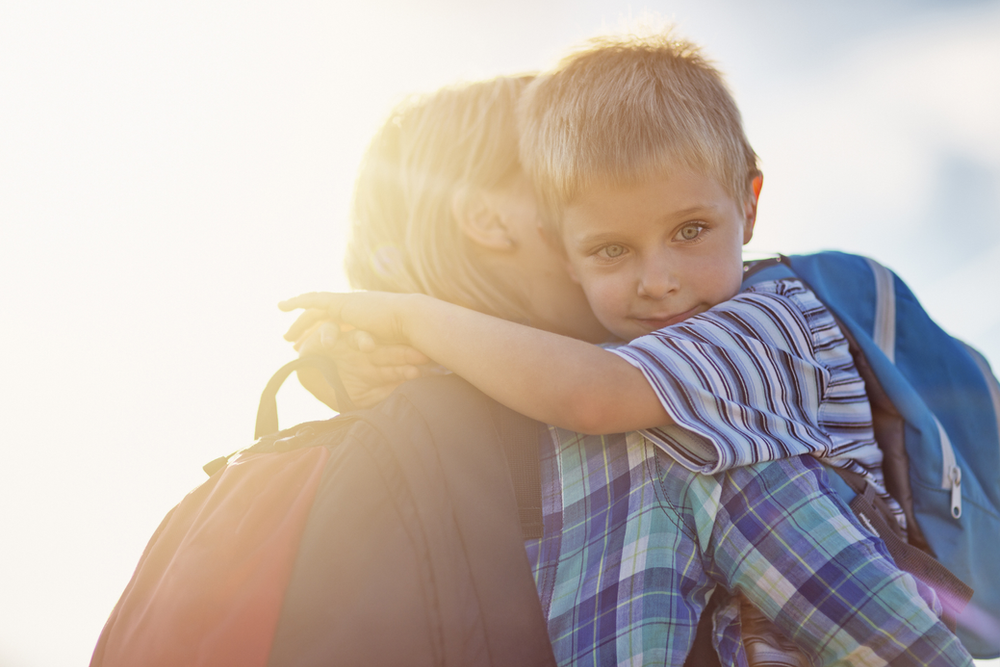
“It requires the influence of sacred and deep things to move the spirit, and the new children of civilized humanity must be given a profound emotion and enthusiasm for the holy cause of humanity.”
– Maria Montessori
A note on the history of Montessori: Dr. Montessori didn’t intend to create a new system of education. Nor did she begin her observations of children looking for ways to place their development within some larger, spiritual framework. She was primarily a scientist, trained to observe objectively. The Montessori Method reflects what she observed when she studied children. It is not a retrofitting to align a pedagogy to a religious lens or to defend a foregone conclusion about the nature of children. Quite the opposite. She studied the nature of children, and then she developed guidelines for how we might best preserve it.
This is important to remember, when we feel challenged to make sure we check off every standard on the curricular checklists, when we are tempted to fill up our children’s time instead of inspire their spirits. When Montessori urges us to understand the “new children,” she is not proposing a way to make them better. She’s describing who they already are, and begging us to stop trying to change that.
“A profound emotion and enthusiasm for the holy cause of humanity.” We are in unprecedented times, in a world-wide crisis that has forced us to rethink all of the presumptions we made so blindly before. The securities which we were confident are suddenly up for renegotiation. The expectations we have for ourselves and for others are redefining themselves moment by moment.
When a natural disaster hits a community, one of the first things people will do afterward is to try to take their bearings. A tornado has come through. Where is the steeple I am used to seeing on the horizon? Where is that old oak that my children liked to hide behind when they were small. Emerging from the storm, we look around to find the things that look familiar. We look for guideposts to give us some sense that the world, even in its devastation, is still a place we understand, a place within which we have some control. These days, families at home are looking for the same reassurance, that we have some normality and some control, that we can replicate the world that existed before this crisis so that maybe the crisis itself isn’t so overwhelming.
And so we try to “do school.” We print out handouts and worksheets and schedules and checklists. We tell our children to sit down at the table and work their way through a “day’s worth” of school, to look like they look when they’re in their rows of desks, when they’re paying attention, when they’re being schooled. So afraid that our children might fall behind, we push them along a track of busy-ness and regurgitation, instead of emotion and enthusiasm.
But what if the guideposts that we looked for, the ones we know we need to feel safe and in some control, the ones we need to remind us that there is a normality coming on the other side of this, were relationships instead of paperwork? What if we stopped trying to “do school” at home and focused instead on “the holy cause of humanity,” on looking at our children as new children, whose nature is good, whose curiosity is ours to preserve?
What would you do differently today if you were genuinely curious about the nature of children, not just of children in general but of the specific children in front of you. What would you do differently if you wanted to end the day knowing more about your child than you do now? Would you sit them down do fill out handouts or plough their way through workbooks? Would you set them up in front of a computer to finish endless loops of memorized facts?
Or would you watch them for a while, to see what they chose when you didn’t choose for them? Would you listen without rushing, to hear what they were most curious to know instead of jumping to the “right answer?” Would you make eye contact, and space beside you, and time, to be with them without expectation? Would you try to understand their fears, or what makes them laugh, or what they want to know most about you?
There are endless ways to “do school.” But just like those street signs or landmarks we look for after a storm, they’re temporary and not so exciting. You’ve had some time now to make sure the ground has stopped shaking. If you could choose what you built from the debris, would you rebuild it all exactly the same, with the same pressure and the same gerbil wheels, the same crazed pace and the same keeeping-up-with-the-? Or would you build something new? Something more connected? Something more joyful? Something more holy? Find the sacred and deep things, the enthusiasm for the holy cause of humanity. We are more than the sum of our worksheets and, if we are to emerge from this stronger, it will be because we have chosen to build something new, something enduring and authentic and profound. It will be because we have begun with the child.
* a response to To Educate the Human Potential Chapter 11: Nomad v. Settler, M. Montessori
